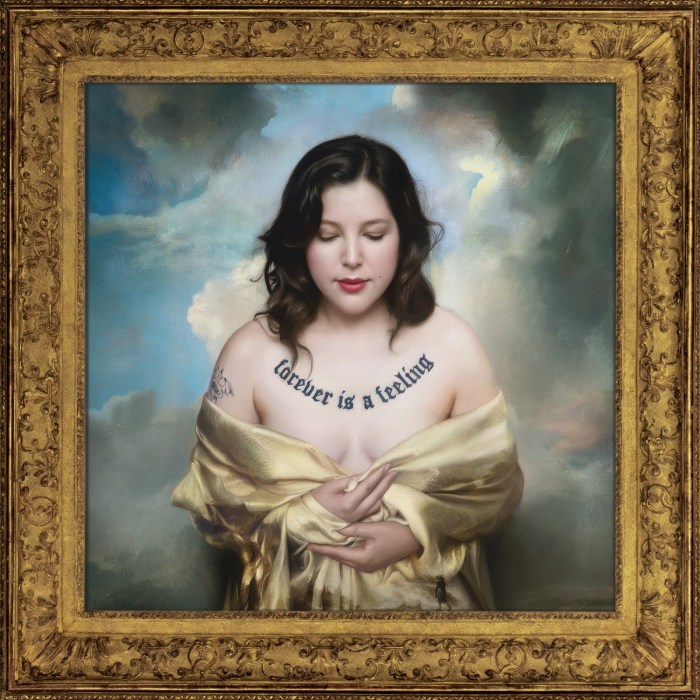The key to opera’s intense appeal unveiled
Attention opera lovers and those who are trying to figure out why certain queens go absolutely nuts over their favorite singers, memorizing their best repertoire, performances and recordings: the new CD, Opera Obsession! may answer your questions. The beauty of some of the selections on this generous 19-track, specially priced disc of excerpts from complete live opera recordings is so great that you may finally understand opera’s intense appeal. You may even want to add it to your collection.
Most of the singers on this disc graced the stages of the Met and other major houses in the 60s and 70s. At the top must be the incomparable 1969 performance from the great soprano Beverly Sills. The extended excerpt, “Il faut partir” from Donizetti’s La fille du régiment, conducted by Roland Gagnon, derives from OPD 1275, and also features Fernando Corena and Grayson Hirst. Sills is in radiant, prime form. Her voice floats in the air, perfectly in tune, delivering the mesmerizing disembodied head tones for which she was prized. Her efforts here are heartbreaking in their tenderness. If you’re only familiar with Sills as a “personality” or spokesperson—the voice inside your taxicab—this selection will prove a revelation: the woman was capable of magic.
Equally essential are two excerpts by the great soprano Montserrat Caballé. The first, “Oh nube! Che lieve” from Donizetti’s Maria Stuarda, recorded in Paris in 1972, derives from OPD 1315 conducted by Nello Santi. Caballé is in superb voice here, freely spinning out her famed, silky soft pianissimo highs. The complete recording also features the voice of tenor José Carreras before singing too many heavy roles compromised it.
Even more heart-opening is Richard Strauss’ brief “Und du wurst mein…” from Arabella, in which Caballé joins Siegmund Nimsgern in phrases so meltingly lovely as to lead this listener to hit “repeat” many times over on the CD player. Excerpted from OPD 1282, this live 1973 Rome performance, conducted by Wolfgang Rennert, also features René Kollo and Kurt Moll. Although Caballé made a highly praised commercial recording of Strauss’ Salome for RCA, she is not particularly known as a Strauss singer; her commercial recording of the Four Last Songs, for example, finds her out of her element, her usual manner of phrasing ill-suited to Strauss’ elongated, soaring lines. In this excerpt, at least, she is marvelous.
Other excerpts include Placido Domingo’s 1972, “Celeste Aida;” Renata Tebaldi’s 1960, “Ebben? Ne andrò lontana;” Renata Scotto and José Carreras living it up in a 1973 Tokyo “Libiamo;” Franco Corelli giving Pavarotti and crew a run for the money in a 1964 “Nessun Dorma” (excerpted from a complete Turandot with Birgit Nilsson and Galina Vishnevskaha), and Corelli’s heroic “Di quella pira,” (excerpted from the famed, oft-issued Salzburg 1962 Il trovatore in which von Karajan conducts a stunning cast that also includes Leontyne Price, Ettore Bastianini, and Giulietta Simionato; Freni sighing “Mi chiamano Mimi” from a live Schippers-conducted La Bohème of 1969 that also features Pavarotti; Maria Callas and Giuseppe di Stefano dueting in a famed 1952 Mexico City Rigoletto; and Pavarotti solo in excerpts from a 1967 Lucia and 1969 Manon (in Italian). Kraus, Bergonzi, Janowitz, Gedda, and Vickers also contribute noteworthy solos.
ITALIAN OPERA ARIAS
Romeo Records (7217) As Sills steps down as Chairperson of Lincoln Center, and Caballé resurfaces in Europe to offer glimmers of her fading gifts, the unfortunately named Olga Makarina, a student of definitely retired Renata Scotto who has sung at New York City Opera and the Met, delivers a debut recital that could serve as a bid for the title of All-Purpose Soprano of the Decade. While Makarina does not efface memories of others who have excelled in her chosen repertoire, Makarina offers solid, satisfying performances with a fine helping of vocal beauty.
The soprano begins with “Eccomi in lieta vesta… O quante volte,” an exquisite recitative and aria from the first act of Bellini’s I Capuleti e I Montecchi. The voice is lovely, the ritards sensible, and the sentiment appropriate for conveying Juliette’s longing for her Romeo. Though the rendition lacks the poignancy and heart-shattering shimmer of Sills’ rare live 1968 Köln performance (last available on Arkadia GI 804.1), it remains the most satisfying performance on the disc.
The recital proceeds without surprises. The bright coloratura gem, “O luce di quest’anima” from the first act of Donizetti’s Linda di Chamounix, offers fine coloratura and a strong if only briefly held high E, but lacks the lightness, buoyancy, speed, and thrilling conclusion that Sills and Sutherland brought to this music.
The aria and cabaletta from Act II of Verdi’s Luisa Miller demands a heavier voice and more interpretive nuance in the cabaletta; “Qui la voce sua soave…vien diletto” from Bellini’s I Puritani leaves Callas, Sutherland, and (way back) Olympia Boronat unchallenged; the Willow Song and Ave Maria from Verdi’s Otello, while quite beautiful, lack the last ounce of pathos necessary to make music so heartbreaking; and the “Casta Diva” from Bellini’s Norma leaves one praying, not to the goddess, but for Callas, Ponselle, or Gheorghiu (a soprano currently in her prime). Similar comments apply to the expected arias from Bellini’s La Sonnambula, and Verdi’s La Traviata; each lacks the ultimate brilliance and interpretive insight that separate the very good from the truly great.
Most disappointing are “Regnana nel silenzio…quando, rapito in estasi” from Donizetti’s Lucia di Lammermoor, which lacks the imagination and vocal magnificence that Sills (whose treasurable complete commercial recording has recently been reissued on Westminster 289 471 250-2) and Sutherland brought to the role; and an unidiomatic “O mio babbino caro” from Puccini’s Gianni Schicchi, which demands a fuller lower range and greater arching lyricism than Makarina provides.
































